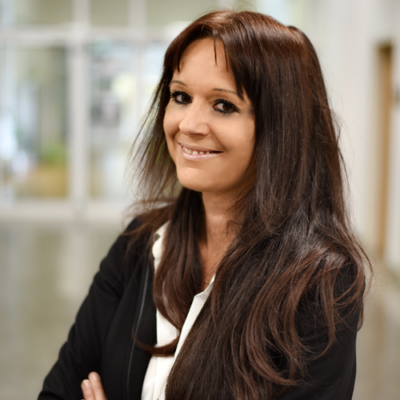Situating AI-based Mentoring
The junior research group “Situating AI-based Mentoring” wants to transform education into a dynamic, accessible, and tailored experience, leveraging the transformative capabilities of AI. Consequently, the group focuses on integrating adaptive and AI-based educational technologies within the vibrant tapestry of education. At the heart of its endeavors lies the belief that these technologies possess the uncanny ability to not just complement but profoundly enhance the learning experience. Therefore, this junior research group is focusing on following key topics:
- digital teaching and learning
- as well as the integration of adaptive and AI-based technologies in educational contexts.
In fact, the importance of the research lies in its function as a nexus between tradition and innovation in a rapidly changing educational environment. It’s not merely about adopting AI-based tools; it’s about crafting them with a deep understanding of pedagogical principles in a world where education is undergoing a perpetual metamorphosis. The promise of these technologies lies not in their mere existence, but in their capacity to reshape education’s narrative.
Projects
Currently, the research group ‘Situating AI-based mentoring’ is conceptualizing a novel EU project that delves into the role of AI in education. The preliminary focus centers on the integration of AI in the educational journey, exploring interactions and collaborations birthed from AI assistance in real case scenarios. As the group embarks on this research, the core aim remains to uncover the transformative potential of AI and its capacity to personalize the learning trajectory. All its endeavors epitomize a harmonious synergy between research-driven AI development and evidence-based educational research.
Additionally, the group’s focus extends to AI-driven competence profiling, aimed at identifying individual learning gaps and optimizing skill development. Through this work, it is illuminating how AI impacts motivation, self-efficacy, and ownership of learning. Upholding ethical considerations, its mission is to ensure inclusive and transparent AI-generated recommendations that cater to diverse learners. In this tapestry of research, the group merges AI development with evidence-based educational insights, reshaping the educational landscape. The ultimate goal is to ensure that educational content is thoughtfully tailored to resonate with each learner’s unique experiences, backgrounds and targets.
Methodologically, the research group adopts a design-based research methodology, intricately weaving both quantitative and qualitative methods. Furthermore, data will be sourced from a learning record store.
Also, the group is exploring the integration of a gamification approach to bolster the achievement of learning objectives. This innovative technique aims to motivate learners through game-like elements and strategies. It envisions crafting an AI-based mentoring assistant deeply grounded in educational science.
Finally, the group’s findings are poised to illuminate the transformative impact of AI-driven mentoring on pedagogical processes, offering a wellspring of insights for AI-developers, educators, institutional leaders, and policy architects within the education domain.
Team
Lead
The junior research group leader, Dr. Sandra Hummel, started at ScaDS.AI Dresden in April 2023. Hummel’s academic journey took her to the University of Graz in Austria, where she completed her PhD in Educational Sciences, specifically focusing on teaching and learning research. Already prior to joining ScaDS.AI Dresden/Leipzig, Hummel had already collaborations with TUD Dresden University of Technology on various research projects.
Over the past three years, Hummel has worked on various initiatives to enhance teaching quality and innovation. Together with cooperation partners from Austria, Germany, The Netherlands, Sri Lanka and Cambodia, she has developed and implemented an AI-based chatbot tutor (The Visionar – Teaching with AI), a smart-authoring tool for higher education (Smart-Authoring), a Learning Analytics dashboard, and several e-courses as well as study programs and curricula, for example for the interdisciplinary Master’s program “Elementary Pedagogy” at the University of Graz.
Her research passion lies in the intersection of education and technology, particularly in human-centered AI-based teaching and learning. Hummel believes in harnessing the power of AI to cater to the diverse needs, aspirations, and capabilities of learners. This conviction has driven her to coordinate several EU projects, all aimed at designing educational technologies that resonate with and adapt to the unique characteristics of varied learners.
Over the recent years, her focus has been on the pedagogically grounded development of adaptive and AI-based teaching and learning systems. Also, Hummel is fascinated by the challenge and potential of integrating these adaptive systems in teaching. She is deeply interested in understanding how they can be didactically embedded to optimally support learning processes.

Dr. Sandra Hummel
TUD Dresden University of Technology
Center for Interdisciplinary Digital Sciences (CIDS)
Team Members
This research group is made up of a diverse and interdisciplinary team including an education scientist, who brings expertise on the pedagogical aspects and methodologies of learning. Additionally, there’s a learning psychologist on board, whose knowledge delves into the cognitive and psychological processes that underpin how individuals learn and process information. Furthermore, the group is enriched by the presence of two AI developers, specialists in creating and fine-tuning algorithms and artificial intelligence solutions. Together, this diverse combination of experts aims to holistically tackle research challenges from multiple angles. And these are the PhD candidates:

Syed Hur Abbas
TUD Dresden University of Technology
Center for Interdisciplinary Digital Sciences (CIDS)

Mana-Teresa Donner
TUD Dresden University of Technology
Center for Interdisciplinary Digital Sciences (CIDS)

Gitanjali Wadhwa
TUD Dresden University of Technology
Center for Interdisciplinary Digital Sciences (CIDS)
Publications
Conference presentations and papers
- Sandra Hummel, Rudolf Egger, Mana-Teresa Donner: Lehren mit KI: Learning Analytics für mehr Studierendenorientierung in der Hochschullehre. GENEME 2023 | 2023, September.
- Sandra Hummel, Thomas Köhler, Natasa Brouwer-Zupancic, Rudolf Egger, Michael Rieger: Empowering Students with AI-based Chatbot Assistants: A New Era of Higher Education?. GENEME 2023 | 2023, September.
- Yuvaraj Natarajan, Gitanjali Wadhwa, Sri Preethaa KR, Karthic Sundaram: Advancing Sustainable IoT Appliance Load Monitoring Through Edge-Enabled Federated Transfer Learning. In 2024 International Conference on Green Energy, Computing and Sustainable Technology (GECOST) (pp. 386-391). IEEE 2024. | 2024.
- Preethaa, KR Sri, Gitanjali Wadhwa, Yuvaraj Natarajan, Anand Paul: Feature Selection Graph Neural Network for Optimized Node Categorization. IEEE Transactions on Consumer Electronics. | 2023.
- Sandra Hummel, Mana-Teresa Donner, Gitanjali Wadhwa, Syed Hur Abba: Smart Companions: Creating AI-based Study Buddies for Personalized Learning. Life@Lab – Horizons of AI Research in Higher Education. Dresden. [Oral Presentation] | 2024.
- Sandra Hummel, Mana-Teresa Donner, Gitanjali Wadhwa, Syed Hur Abbas: Learning Diversification through AI Mentorship. Interdisziplinäres Barcamp zu Künstlicher Intelligenz im Hochschulbereich. Laubusch. [Oral Presentation] | 2024.
- Sandra Hummel, Mana-Teresa Donner: Motivational Impacts on AI in Student Learning. The Paris Conference on Education (PCE, 13.-17.06.). Paris. [Oral Presentation] | 2024.
- Sandra Hummel, Mana-Teresa Donner: Digital Companions for Learners: Design Principles for AI Assistants in Education. The Paris Conference on Education (PCE, 13.-17.06.). Paris. [Poster Presentation] | 2024.
Journal articles
- Yuvaraj Natarajan, Sri Preethaa KR, Gitanjali Wadhwa, Young Choi, Zengshun Chen, Dong-Eun Lee, Yirong Mi: Enhancing Building Energy Efficiency with IoT-Driven Hybrid Deep Learning Models for Accurate Energy Consumption Prediction. Sustainability 16, 5, 1925. | 2024
- Sandra Hummel, Mana-Teresa Donner: KI-Anwendungen in der Hochschulbildung aus Studierendenperspektive. FNMA Magazin, 3, 38-41. 2023. https://doi.org/10.13140/RG.2.2.13967.97446
- Sandra Hummel: KI-Innovationen: Neue Horizonte für die Erwachsenenbildung. Die Österreichische Volkshochschule Magazin, Herbst 2023, 280. 2023. https://magazin.vhs.or.at/magazin/2023-2/280-herbst-2023/
- Sandra Hummel, Nearyroth Meas, Majula Vithanapathirana: The Project CONTESSA – Contemporary Teaching Skills for South Asia. Capacity Building in Education. Weiterbildung: Zeitschrift für Grundlagen, Praxis und Trends, 1. 36-39. 2023. https://weiterbildung-zeitschrift.de/produkt/weiterbildung-01-2023-pandemieresilienz-stark-in-krisenzeiten/
Edited Volumes
- N. Yuvaraj, K. Mouthami, Gitanjali Wadhwa, Srivatsa Sundarraj, & S. A. Srinivasan: Deep learning system of naturalistic communication in brain – computer interface for quadriplegic patient. In Computational Intelligence and Deep Learning Methods for Neuro-rehabilitation Applications (pp. 215-238). Academic Press | 2024.
- Mana-Teresa Donner, Sandra Hummel: Digitisation of examination formats in higher education – Corona-related changes in university examination processes. In Sandra Hummel, Mana-Teresa Donner (Eds.), Student Assessment in Digital and Hybrid Learning Environments| 2023. https://doi.org/10.1007/978-3-658-42253-0_5
- Rudolf Egger, Sandra Hummel: Biographieforschung und Hochschulforschung. In: Dieter Nittel, Heide von Felden, Meron Mendel (Eds.), Handbuch Erziehungswissenschaftliche Biographieforschung und Biographiearbeit| 2023, 12 Link.
- Sandra Hummel, Mirjam Brodacz-Geier, Bridget Sheehan. Integral Components of Pedagogical Professionalization Processes in Digital Contexts. In S. Hummel (Ed.), Contemporary Teaching Skills for South Asia from Multiple Perspectives. Springer VS. 2024.
- Sandra Hummel, Sandra Bohlinger, Bridget Sheehan: CONTESSA – An Innovative Program Fostering Pedagogical Professionalization. In: Sandra Hummel (Ed.), Empowering Education in Cambodia and Sri Lanka: Advancing Quality in 21st Century Teaching and Learning| 2024
- Sandra Hummel, Sarah Aldrian, Bridget Sheehan: Development of Pedagogical Skills and Practices: A Case Study from Sri Lanka. In: Sandra Hummel (Ed.), Empowering Education in Cambodia and Sri Lanka: Advancing Quality in 21st Century Teaching and Learning| 2024
- Sandra Hummel, Rudolf Egger, Mana-Teresa Donner: Lehren mit KI: Learning Analytics für mehr Studierendenorientierung in der Hochschullehre? In T. Köhler, E. Schopp, N. Kahnwald & R. Sonntag (Eds.), Gemeinschaft in Neuen Medien. Digitalität und Diversität. Mit digitaler Transformation Barrieren überwinden!? 26. Workshop GeNeMe’23 Gemeinschaften in Neuen Medien. TUDpress.
- Sandra Hummel, Thomas Köhler, Natasa Brouwer-Zupancic, Rudolf Egger, Michael Rieger: Empowering Students with AI-based Chatbot Assistants: A New Era of Higher Education? In: T. Köhler, E. Schopp, N. Kahnwald & R. Sonntag (Eds.). Gemeinschaft in Neuen Medien. Digitalität und Diversität. Mit digitaler Transformation Barrieren überwinden!? 26. Workshop GeNeMe’23 Gemeinschaften in Neuen Medien. TUDpress.| 2023.
Third Mission
Podium
- Sandra Hummel: E-Teaching-Day der TUD: KI an der TU Dresden – Wie weit sind wir und wo wollen wir hin?
Massive Open Online Courses (MOOCs)
- Sandra Hummel, Mana-Teresa Donner: Lehren mit Learning Analytics. iMooX. 2023. https://imoox.at/course/LALehren
- Martin Ebner, Phillip Leitner, Daniel Handle-Pfeiffer, Gisela Kriegler-Kastelic, Larissa Bartok, Marcela Hubert, Tiantian Tang, Christoph Winter, Robin Gleeson, Sandra Hummel, Mana-Teresa Donner, Hristina Veljanova, Nicole Gosch: Learning Analytics für die Hochschullehre. iMooX. 2023.https://imoox.at/course/lahe
Self-organized Conference
- KI-Symposium: Life@Lab – Horizons of AI Research in Higher Education | 24.-25.01.2024 | Dresden | https://tu-dresden.de/codip/zentrum/termine/ki-symposium-life-lab-horizons-of-ai-research-in-higher-education
- Interdisziplinäres Barcamp zu Künstlicher Intelligenz im Hochschulbereich | 26.-29.02.2024 | Laubusch | https://tu-dresden.de/codip/zentrum/termine/interdisziplinaeres-barcamp-zu-kuenstlicher-intelligenz-im-hochschulbereich
Editorship
- Sandra Hummel, Mana-Teresa Donner (Eds.): Student Assessment in Digital and Hybrid Learning Environments| 2023. https://doi.org/10.1007/978-3-658-42253-0
- Sandra Hummel (Ed.): Empowering Education in Cambodia and Sri Lanka: Advancing Quality in 21st Century Teaching and Learning. | 2024. https://doi.org/10.1007/978-3-658-43306-2
- Hummel, S., Assinger, P., Bauer, C., Brudermann, T., Jany, A., Jury, M., Rauter, R., & van Poppel, M.: (Eds.) (2023). Shaping Tomorrow Today – SDGs from multiple perspective. Springer VS. https://doi.org/10.1007/978-3-658-38319-0
Miscellaneous
- Sandra Hummel, Mana-Teresa Donner, Rudolf Egger: Lehren mit Learning Analytics. Qualifizierungsprogramm für die Hochschullehre. Universität Graz. 2023. https://oer-portal.uni-graz.at/edu-sharing/components/collections?viewType=1&id=df2fc7c7-b832-421b-acec-764181c6c2f0
- Sandra Hummel, Mana-Teresa Donner, Rudolf Egger: Lehren mit Learning Analytics. Empfehlungen für das Coaching von Lehrenden. Universität Graz. 2023. https://oer-portal.uni-graz.at/edu-sharing/components/collections?viewType=1&id=df2fc7c7-b832-421b-acec-764181c6c2f0


